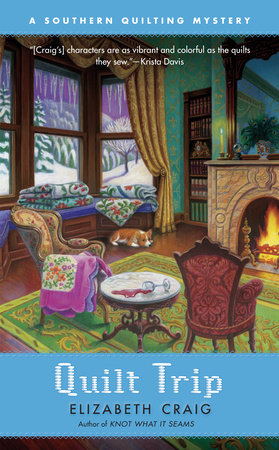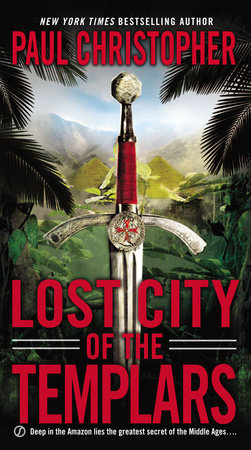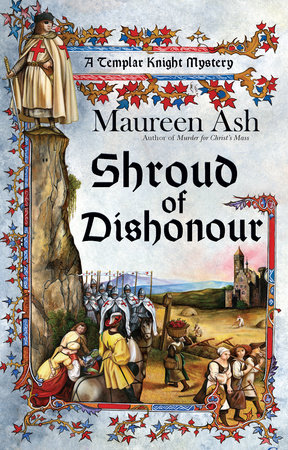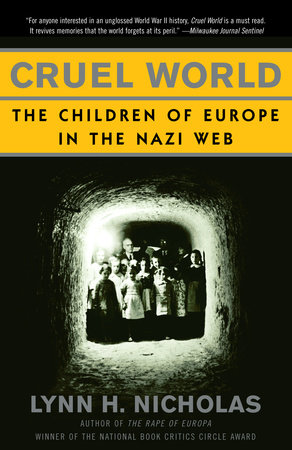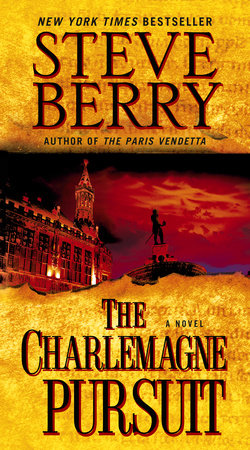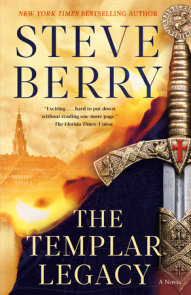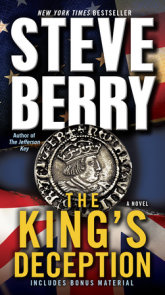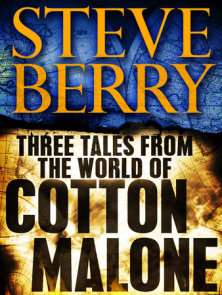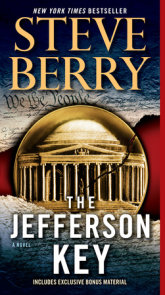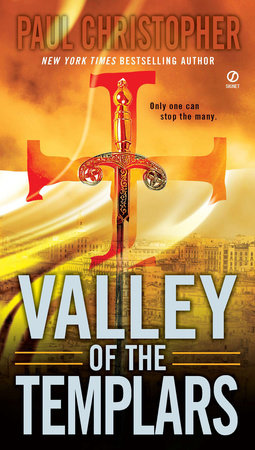Author Q&A
Charlemagne is not an historical subject or character you see in a lot of thrillers, what drew you to him?
The fact that he hasn’t appeared in many thrillers was the main draw. Katherine Neville is the only writer I can recall who’s made good use of him. Charlemagne is fascinating. He ruled for 47 years and lived to be 74 at a time when kings rarely reigned more than 5 years and people died long before age 40. He unified a continent and laid the groundwork for the formation, centuries later, of a modern Europe. Many of his policies and practices became proven models for western law and government. He was a visionary who surrounded himself with smart people and, for the first time, placed the needs of his subjects before royal ambition. He was so progressive that it begs the question–did he have help? Was he privy to special knowledge? Both are interesting questions that spurred my imagination.
The strange writings and the manuscript quoted throughout the book, where did they come from?
I utilized an actual artifact known as the Voynich Manuscript. It’s preserved in the Beinecke Rare Book and Manuscript Library at Yale University. Supposedly created sometime in the 15th or 16th centuries, its folios are penned in a language that no one has ever been able to decipher. In addition, there are a multitude of colorful, odd drawings filling its pages. By general consensus the Voynich Manuscript is probably an elaborate medieval hoax, designed to fleece a royal patron out of a hefty payment. But no one knows for sure. As is made clear in The Charlemagne Pursuit, writing may well have been the single most important creation of human kind. Once we learned to memorialize our thoughts, in languages that could be understood by others many millennia later, human civilization rose to new levels. The Charlemagne Pursuit explores this phenomena.
Is the concept of a ‘first civilization’ something mainstream 21st century science has embraced?
Not yet, but it’s only a matter of time. The idea that we may not have been the first humans to achieve a level of intellectual sophistication makes sense. Cultures, like plants and animals, and earth itself, all develop, evolve, flourish, then fade into extinction. Our current civilization may only be one link in a long and complicated social chain. Evidence of heretofore unknown neolithic sites are being discovered around the world with startling regularity. Most are underwater, in areas that were dry land before the last Ice Age. And what lies beneath those two miles of Antarctic ice? Unfortunately, we’ll probably never know, but the possibilities are endless.
This is an intensely personal journey for Cotton Malone, was that intentional?
No question. I knew that Cotton confronting what happened to his father would be an emotional experience. For 38 years he’s pondered that situation. Then I came across the book Ice, by Marianna Gosnell, which described the amazing affects of the Antarctic cold. Once I realized what was possible, I increased the intensity of Malone’s journey. As a writer, I struggle with character development. It’s something I work hard to expand. This book, my seventh novel, allowed me an opportunity to expand my craft. This story is much character-driven than the others. I can only hope that reader’s regard my effort as a positive one.
You have some great locales in the story. How many did you actually visit while writing?
I visited the Zugspitze in Bavaria and rode the same cable car 10,000 feet up that Malone finds himself trapped on. I also loitered around the cathedral in Aachen for four days, trying to conjure up the Charlemagne pursuit. Biltmore Estate in Asheville is one of my favorite places. I’ve visited several times, especially at Christmas. As for Antarctica, unfortunately I didn’t make it there (thank goodness the good Lord created National Geographic). My goal is to walk upon all seven continents. I have two to go, one being Antarctica, which is at the top of my must-see list.
Speaking of Antarctica, what about the great secrecy that surrounds the Nazi expedition there in 1938 and the two American missions there in the 1940s?
The Nazis went to scout strategic locations and search for untapped mineral wealth. But they found a continent tough to tame. Great mineral deposits exist, but they are difficult to extract, especially with the state of technology at that time. World War II eventually interfered with Germany returning, though conspiratorialists believe that they did return and established a secret base. Our Operations Highjump and Windmill, which came a decade after, were pure military jaunts. We went to explore, test men and equipment, and learn. Some say we went to find that Nazi base. Much about both of these extensive, cold-weather military operations remain classified to this day, which only encourages speculation as to what might have been encountered.
What’s next for Cotton?
At least two more adventures. One in 2009–another in 2010. I’m writing the 2009 story right now, tentatively called The Paris Club. Hopefully, Cotton Malone will continue to live on for many years after that.




